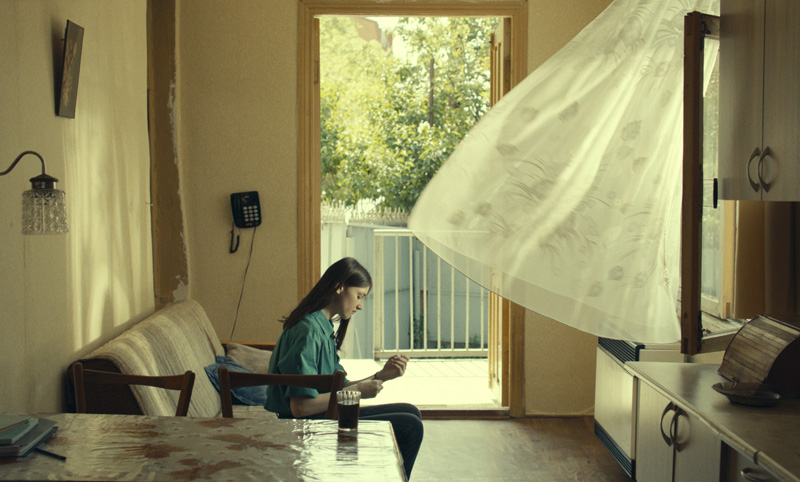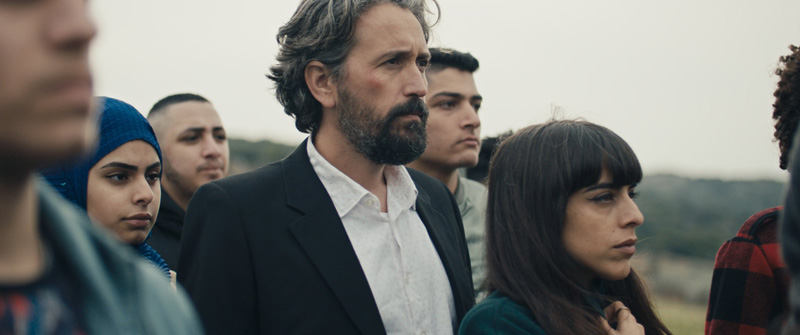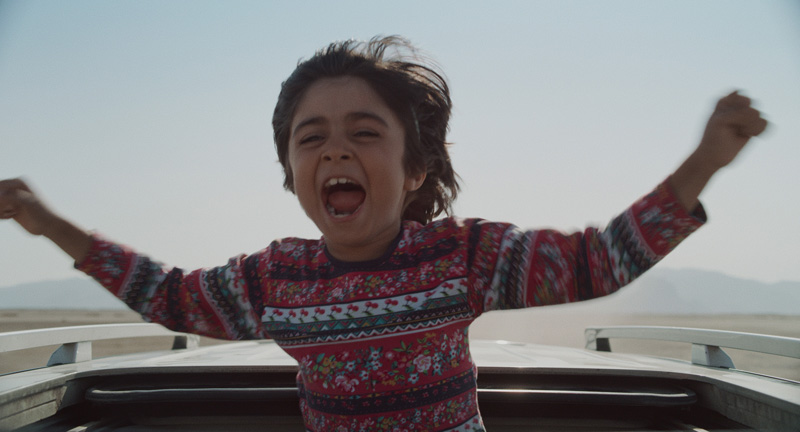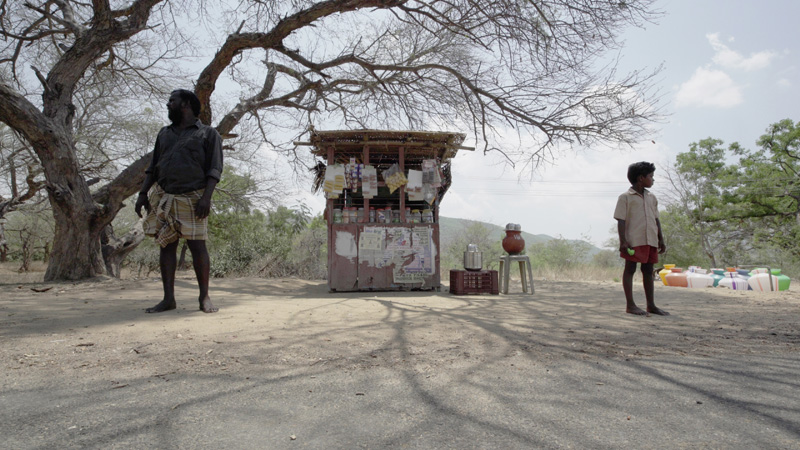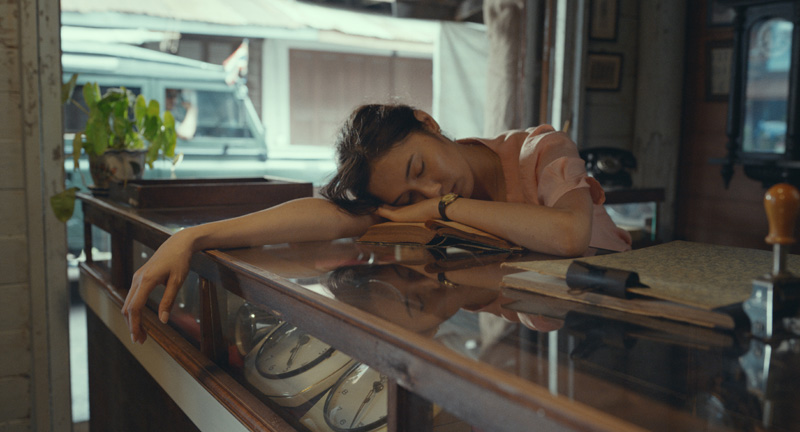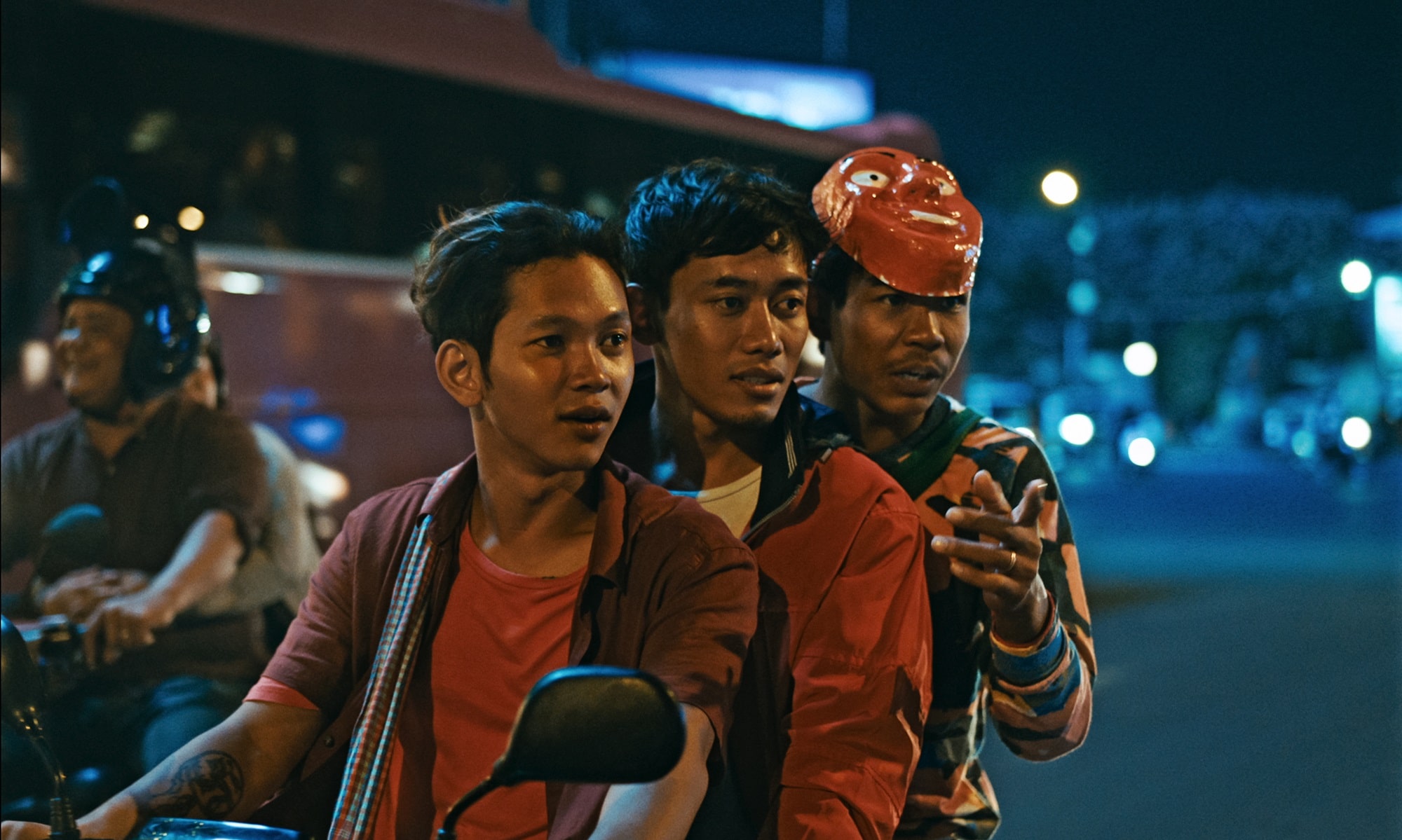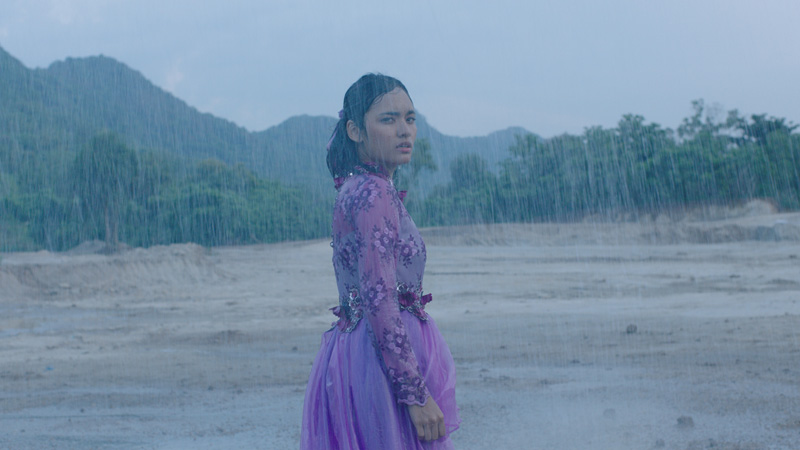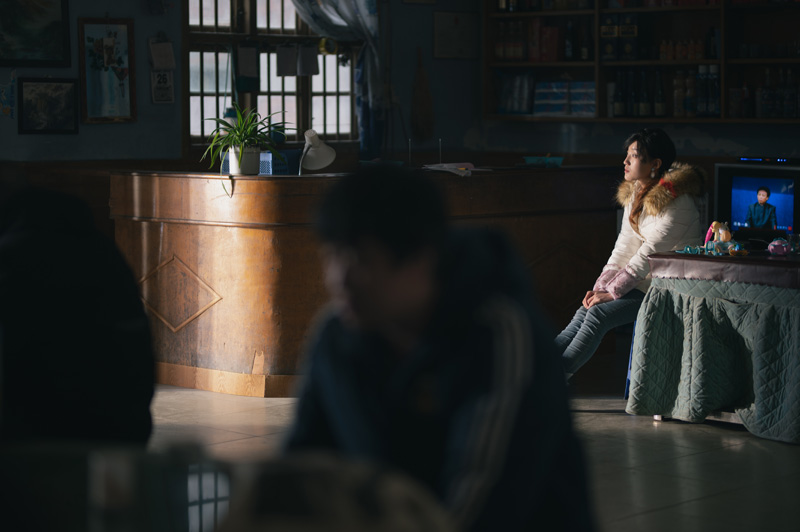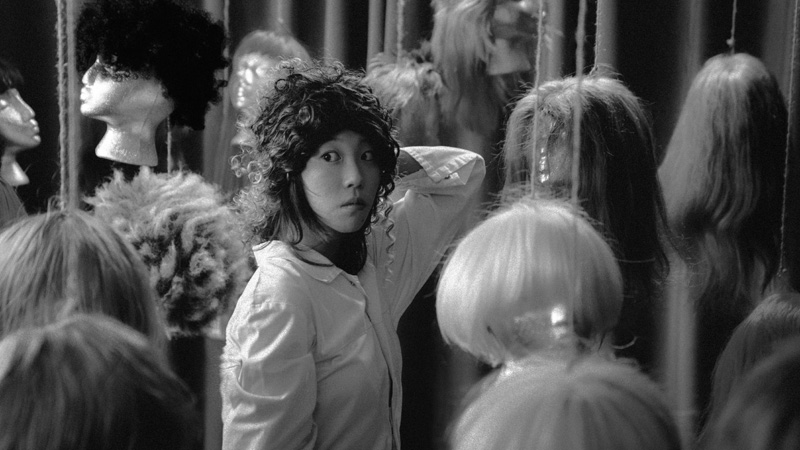TOKYO FILMEX 2021 AWARDS
TOKYO FILMEX 2021 AWARDS as of Nov. 07, 2021
【TOKYO FILMEX 2021 AWARDS】
【Grand Prize】
『What Do We See When We Look at the Sky?』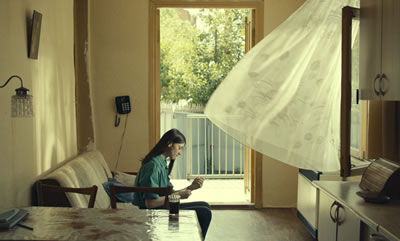
Director: Alexandre KOBERIDZE
Georgia, Germany / 2021 / 150 min
~The winnig film’s director will receive 500,000yen
In this beautiful portrait of the city of Kutaisi, the camera gives its impartial gaze to its people, animals, trees, rainwater pipes and all the existence. Using unilateral violent device called “camera,” this film succeeds to make a fair relationship with subjects, and its image leads us to the open conversation of cinema with the world. Magically fantastic fiction shall function not to make us believe the false world but to make us regain the trust to the world that has been cut off in the present time. By questioning 〈What Do We See When We Look at the Sky?〉 the film’s unique challenge shows us a ray of hope in the future of cinema.
【Grand Prize】
『Anatomy of Time』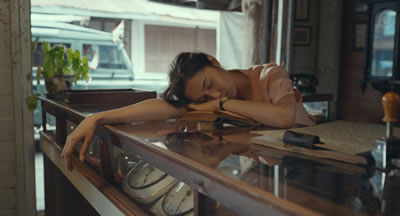
Director: Jakrawal NILTHAMRONG
Thailand, France, Netherlands, Singapore / 2021 / 118 min
~The winnig film’s director will receive 500,000yen
The film 〈Anatomy of Time〉 intertwines different layers of time, the past and the present of its characters, in an intriguing and highly challenging way. By interweaving sequences, in which time almost seems to stand still, with suddenly erupting elements of a cruel and violent history, it creates a fluid cinematic space, that transcends the borderlines between present and past. Through images of the aged body and the imprints, history left on them, we experience time as a concrete physical texture, while we also can sense its spiritual nature. Parts of characters’ motivations and their individual contexts, or certain scenes are not fully explained and remain enigmatic, giving sometimes a feeling of strangeness, and allow the audience the freedom of making its own interpretation. The director takes us on a journey, where the real and the unreal are not opposing each other. He invites us, to connect the pieces of the story and to re-define our own viewpoint continuously. Another captivating dimension of the film is the sensitive way to embrace the ambivalence of the elements, nature, characters and situations.
■Audience Award
『Wheel of Fortune and Fantasy』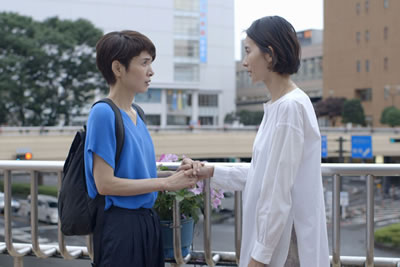
Director:HAMAGUCHI Ryusuke
Japan / 2021 / 121min
■Student Jury Prize
What Do We See When We Look at the Sky?
Director:Alexandre KOBERIDZE
Georgia, Germany / 2021 / 150 min
All films in this section will screen with English subtitles.
(★=Feature film directorial debut)
What Do We See When We Look at the Sky?
Georgia, Germany / 2021 / 150 min
Director:Alexandre KOBERIDZE
In the streets of the city of Kutaisi, Risa and Georgi fall in love at first sight and promise to meet each other again the next day. They part without even knowing each other’s names. But the following morning they wake to find themselves transformed by some strange power into completely different bodies and they have lost their former talents and knowledge. They both cling to dreams of meeting each other again, but there seems to be no hope for the parted lovers as time flows on as normal in the city of Kutaisi. Then one day a film crew arrives in the city and the football World Cup begins. A deeply moving paean to lovers who brush past each other like ships in the night, to the nameless people and dogs whose lives they grace, and ultimately to the art of cinema itself. The film was screened in Competition at the Berlin Film Festival.
Israel, France / 2021 / 101 min
Director: Eran KORILIN
Sami travels from Jerusalem to his home village in Palestine to attend his older brother’s wedding, accompanied by his wife and child. After the ceremony concludes, the town is placed under siege by Israeli soldiers without warning, throwing Sami into an unexpected situation where he’s cut off from the outside world. He’s forced to face up to the chilly relations with his wife, as well as deal with his parents, brothers, and the estranged hometown pals he feels are now beneath him after settling in Jerusalem. And yet.... Since making his auspicious feature debut with “The Band’s Visit” (2007), director Eran KOLIRIN’s “Let It Be Morning” marks his fourth feature, following 2016’s “Beyond the Mountains”. Set against a backdrop of complex politics, this vividly humanistic drama based on Palestinian writer Sayed KASHUA’s titular novel is depicted in measured strokes. Screened in Cannes Un Certain Regard 2021.
Iran / 2021 / 93 min
Director:Panah PANAHI
A family of four and their dog set out on a road trip. The young child is overly high-spirited. The cynical father is in the back seat with a cast on his broken leg. And the mother sits in the passenger seat trying her best to act cheerful. Looking sidelong at their lively conversation is the eldest son who wordlessly drives the car. And thus their car travels through the wilderness.... This is the long-awaited feature film debut by Panah PANAHI who has frequented the sets of Abbas KIAROSTAMI's films since he was a child, and has served as assistant director as well as co-editor on the recent films by his father Jafar PANAHI. His ability to manipulate the conflicting elements of pathos and humor with adroit pacing and camerawork is already at a polished level. World premiered at the Directors' Fortnight of the Cannes film Festival.
India / 2021 / 74 min
Director:P.S.VINOTHRAJ
A short-tempered, alcohol-fueled man prone to violence hauls his reticent young son out of school. They catch a bus headed for his wife’s hometown village in order for the man to reclaim her after driving her out of the house. He discovers that she’s already returned to their residence and is about to board the bus back when his son takes off. Left with no means to get home, they set out into the scorching, barren wilds on foot… Hailing from Madurai in the state of Tamil Nadu, filmmaker P.S. VINOTHRAJ makes his brilliant feature debut. Although “Pebbles” is a relatively simple tale of a father and son’s journey, the unique camerawork precisely captures the vast, dusty landscape and the people subsisting in it, while the story’s framework superbly exposes a patriarchal society in which undue burden is forced on women. Winner of the Tiger Award at the 2021 International Film Festival Rotterdam.
Thailand, France, Netherlands, Singapore / 2021 / 118 min
Director:Jakrwal NILTHAMRONG
Thailand in the late 1960s. Maem dwells in a rural town with her clock-smith father while tensions rise between the military dictatorship and communist rebels. She has a close relationship with two men, a young mild-mannered rickshaw driver, and an ambitious senior military officer. Meanwhile, the events of the 1960s are being portrayed concurrently with the present-day as Maem nurses a middle-aged man confined to a bed.... This is the highly anticipated second narrative feature by Jakrawal NILTHAMRONG following "Vanishing Point" (2015). Depicting one woman in her youth and the later outcome of her life each in a fragmented fashion, the story steadily builds multiple layers overlapping the tragic history of a nation with the past of one individual exploited by it. Phuttiphong AROONPHENG ("Manta Ray") serves as cinematographer as he did on "Vanishing Point", and here as well performs career-defining work. World premiered at the Venice Film Festival's Orizzonti section.
Cambodia, France, China, Qatar / 2021 / 90min
Director:NEANG Kavich
“The White Building” is a communal housing apartment with a very unique design built in Phnom Pen in 1963. A young man named Samnang lives there with his family, and he and two friends are pouring their youthful hopes and dreams into rehearsals for a TV dance competition. But the building is scheduled to be demolished. Samnang's father is the spokesperson for the residents but feels cornered when the residents’committee dissolves into warring factions. And then his best friend decides to leave Cambodia... Director NEANG Kavich grew up in the White Building and his previous film, “Last Night I Saw You Smiling” (2019), was a documentary about the demolition of the apartments. This latest film is a fictional exploration of the experiences of the residents on the eve of the destruction of the apartments. The film had its world premiere in the Orizzonti (Horizons) Section of the Venice Film Festival.
Indonesia, Singapore, France, Australia / 2021 / 95min
Director:Kamila ANDINI
Teenager Yuni is in her last year in high school. She is brimming with talent and ambition but doesn’t quite know what she wants to do with her life. To discover her own potential she makes up her mind to go to university. But her whole plan is thrown up in the air when she receives a marriage proposal. Director Kamila ANDINI’s third feature film, following “This you see, things you must see” (2017), deals unflinchingly with the dilemmas of teenage girls in contemporary Indonesian society. It is a sensitive, non-sensational exploration of teenage sex and matchmaking marriages in Muslim society. The realistic treatment of the subject is strikingly different from other similarly themed films. “Yuni” was screened in the Platform Section of the Toronto International Film Festival.
China / 2021 / 123min
Director:Wei SHUJUN
An anthology of three stories stemming from the arrival of a film production team preparing to shoot in a countryside of Hunan province. In the first episode, the daughter of a local eatery owner is excited by the movie crew’s presence and begins to dream of a different life. The second episode depicts the local residents’ reception of the film’s lead actress, who’s returning to her small hometown for the first time since becoming famous. In the third and final episode, the film’s director and screenwriter repeatedly clash over their differing views on what the film should be. “Ripples of Life” marks director WEI Shu-jun’s second directorial effort following his feature debut “Striding Into the Wind”, a Cannes 2020 official selection. WEI pulls back the curtain on his own filmmaking process and boldly incorporates it into the screenplay in this ambitious work. Going beyond simply depicting a film within a film, the graceful way WEI captures the “ripples” caused by a visiting movie production on a small town is a masterstroke. Screened in Cannes Directors’ Fortnight 2021.
China / 2021 / 110min
Director:Queena LI
A young woman arrives in the Tibetan capital of Lhasa without much of an idea why she’s there. Whatever her vague plans may be, things take a sharp turn after she comes across a lobster at the hotel restaurant. She learns that the apparently holy creature can only thrive in the illumination of a lighthouse on a distant island far out at sea. She purchases a taxi driver’s vehicle and sets out on the long journey to Ming Island to return it to its habitat... Following dream logic, director Queena LI’s feature debut is permeated with peculiar symbolism and a constant sense of precariousness while eschewing audience expectations. However, through the protagonist’s various encounters, she gradually embraces the notion of living in the moment, wherever it may take place, and perhaps it doesn’t take viewers very long to become in sync with her. Singer-songwriter Leah DOU shines in the role of the girl, and also contributed to the soundtrack. Screened in the Tiger Competition at the International Film Festival Rotterdam 2021.
Japan / 2021 / 96min
Director:OKUDA Yosuke
A man who works at a popular Chinese restaurant is asked advice from a female co-worker regarding her son being bullied at high school. As a result, he becomes involved with the woman's son and his long, lost father. Meanwhile, a woman who is an actress in a small theatre troupe meets a manga artist's assistant at a get together and smoothly ends up living with him at his apartment.... The first half of the film focuses on the Chinese restaurant employee played by director OKUDA Yosuke himself and the young high school boy. The second half develops around the female actress and while these two are vastly separated, their stories subtly intertwine leading to an unexpected conclusion. As with OKUDA's previous works this film consists of parallel storylines and connected reactions to small incidents which at times provokes violent and at times comical outcomes. Though OKUDA maintains a restrained portrayal through to the end, the stinging feeling that exudes from it typical of his work is alive and well.


